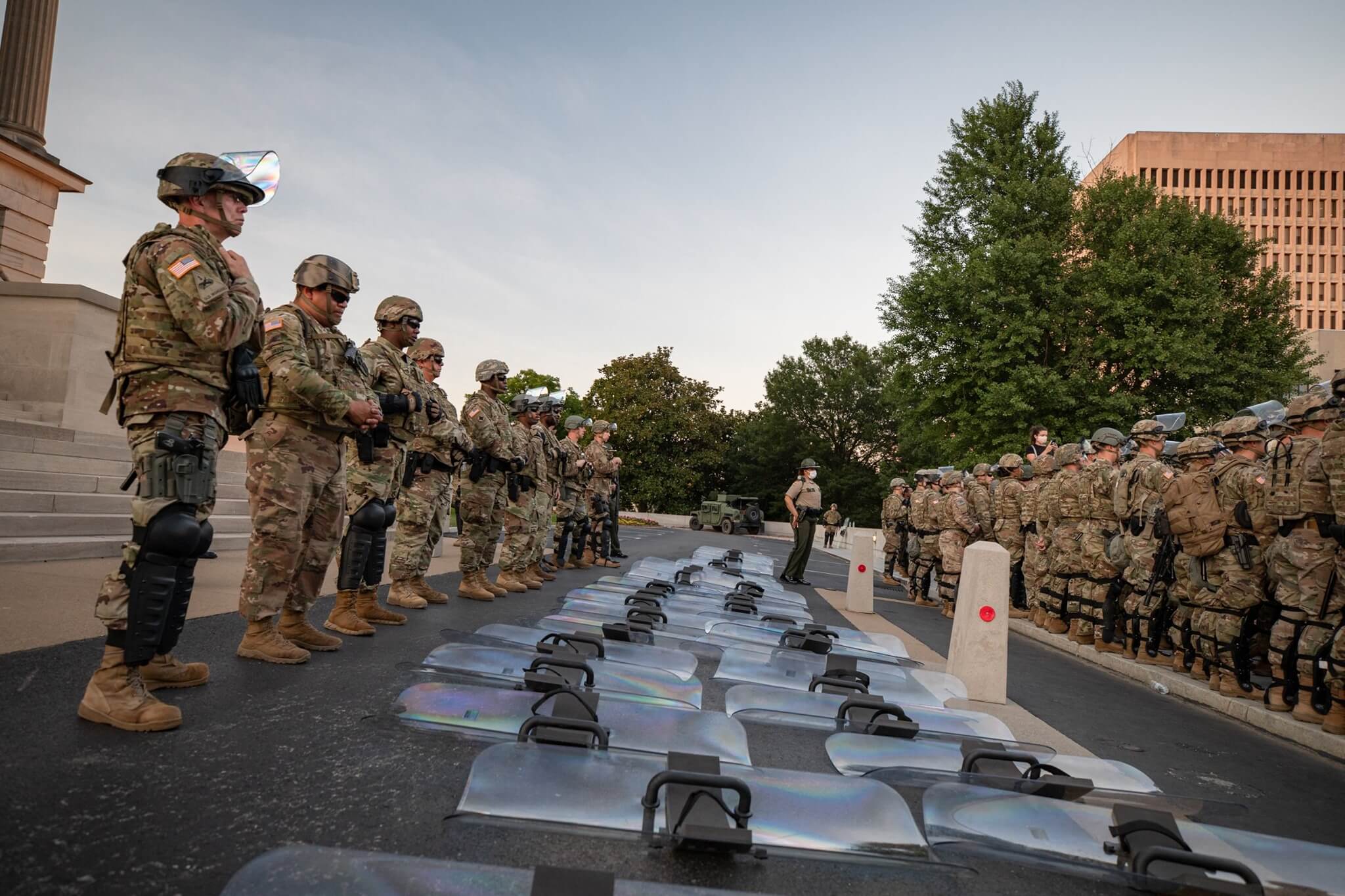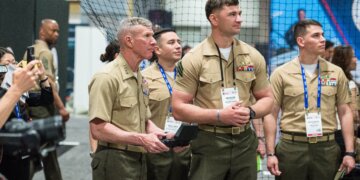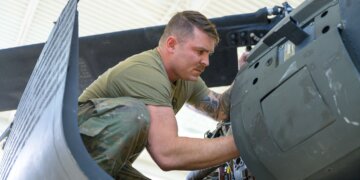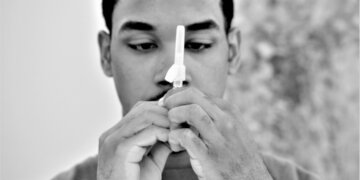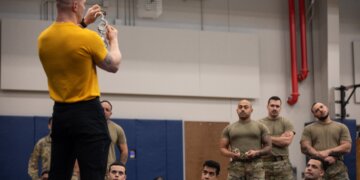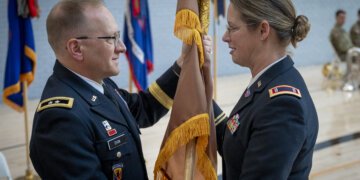Lt. Col. Christopher Messina said the 12,000 members of the Tennessee National Guard are no different than the people they serve. They’re just like you.
“We’re your family and neighbors,’’ Messina said. “We work with you. We celebrate with you, and we suffered with you.’’
Nearly 40,000 National Guard members have been dispatched in every state, three U.S. territories and the District of Columbia because of the COVID-19 pandemic. As of Wednesday afternoon, the virus has killed more than 106,000 Americans, and almost 1.85 million have tested positive, data from the Johns Hopkins Coronavirus Resource Center showed.
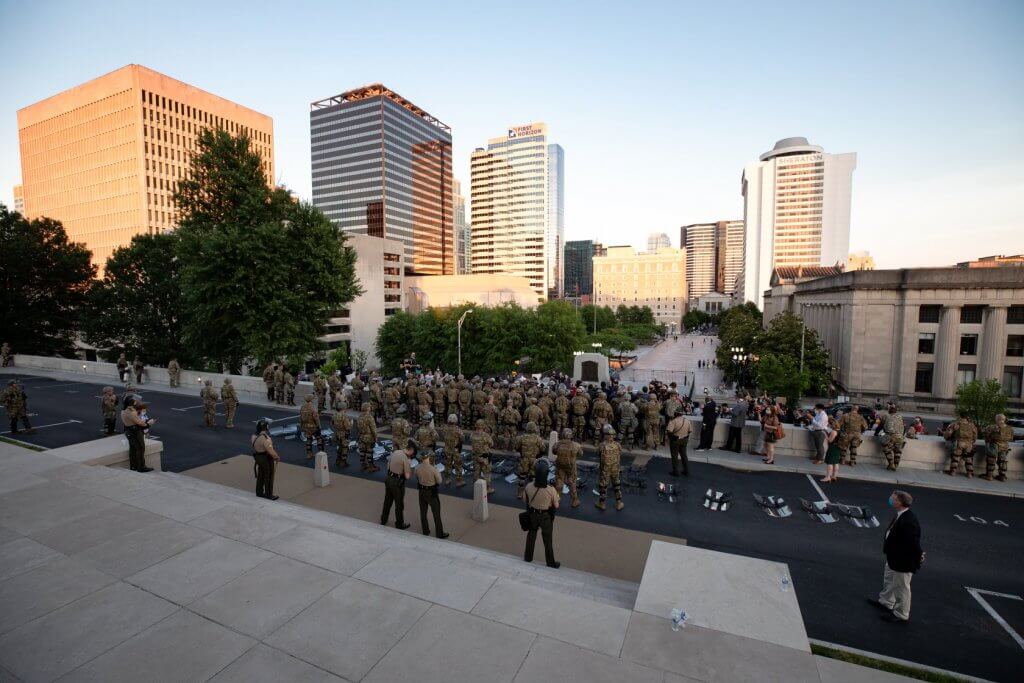
Then came the death of George Floyd on May 25, after Minneapolis police officer Derek Chauvin pressed his knee into the back of Floyd’s neck for almost nine minutes, sparking national outrage. Video of the incident ignited protests for social justice and against police brutality, prompting the National Guard to send 30,000 members to 31 states and Washington, D.C., so far.
National Guard officials in several states said the civil unrest has not compromised their units’ response to COVID-19.
“The California National Guard is able to support both missions right now,’’ Lt. Col. Jonathan Shiroma said. “… Is there a challenge? I don’t know if challenge is the right word. What makes this a bit more personal is that this is all happening within our own state.’’
An unprecedented 74,000 soldiers and airmen are currently mobilized for domestic missions, the National Guard Bureau said in a news release Wednesday morning. Roughly 51,000 Guard members, the previous record, were activated for Hurricane Katrina in 2005.
“The biggest impact it has is on the staffs that are doing the planning for all the different events that are going on,’’ Col. Matthew Woodruff, a Joint Task Force commander with the Ohio National Guard, said. “As far as capabilities, it really hasn’t reduced our capabilities.’’
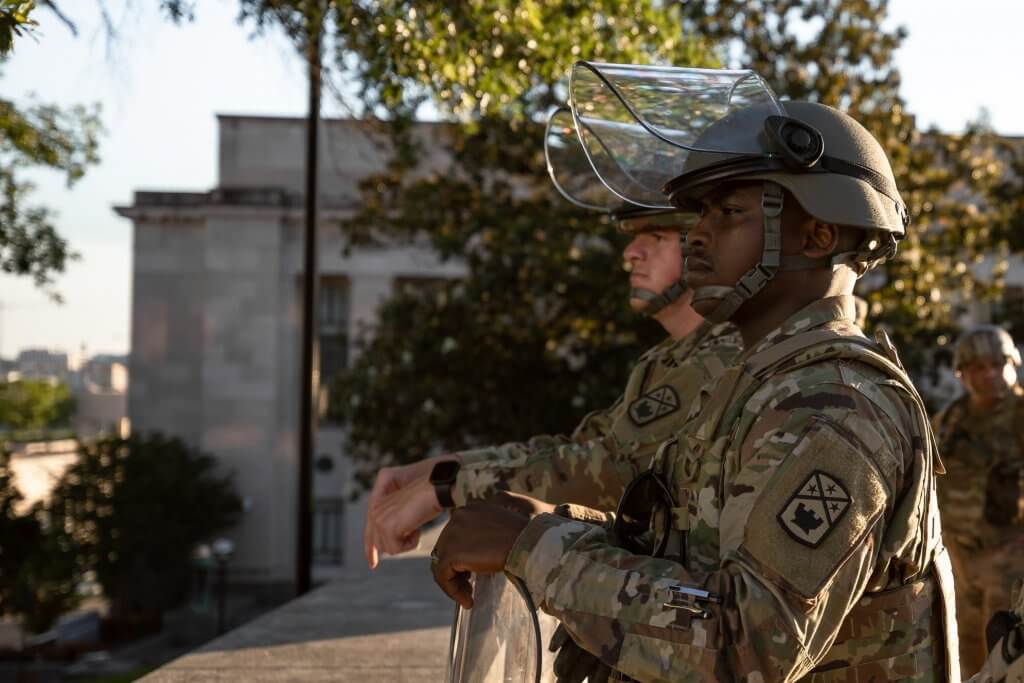
Ten states have sent or will send National Guard members to Washington, D.C., to assist in attempting to maintain peace.
Woodruff said 100 soldiers and airmen from Ohio arrived in the nation’s capital late Tuesday night. A thousand members from Tennessee’s guard are scheduled to join that mission Saturday, Messina said.
“We respect and uphold the right to freedom of speech,’’ Messina said. “We deter all acts of violence against our communities, so we’re here … We’re truly citizen soldiers.’’
In Florida, four of 28 coronavirus testing sites were closed for a day as the National Guard moved some members from the COVID-19 mission to support security efforts during protests.
“However, that was on a Sunday, … and traffic is generally very light,’’ Florida National Guard spokesman William Manley wrote in an email. “The time allowed for planning was minimal, but fortunately, we’d done some of the civil-unrest planning at the beginning of COVID-19 operations and were able to apply that.’’
Whether it is because of the pandemic or Floyd’s death, the public’s response to the National Guard’s presence has been mostly positive. Messina mentioned a scene in Nashville, Tennessee, this week, in which guard members lowered their riot shields at the request of protesters.
“It changed their attitudes and behaviors dramatically,’’ Messina said.
At the time of reporting, charges against Chauvin in Floyd’s death were upgraded to second-degree murder, and the three other officers at the scene were charged. That was a small sign of encouragement for so many who have gone through so much.
The cases against the officers are far from over, as is the National Guard’s work on the front lines of two major events.
“It’s not just difficult to see the issues that we’re experiencing through the civil unrest,’’ Woodruff, of the Ohio National Guard, said. “The amount of need that we’ve seen throughout the state in the last several months is trying.’’
Read comments


